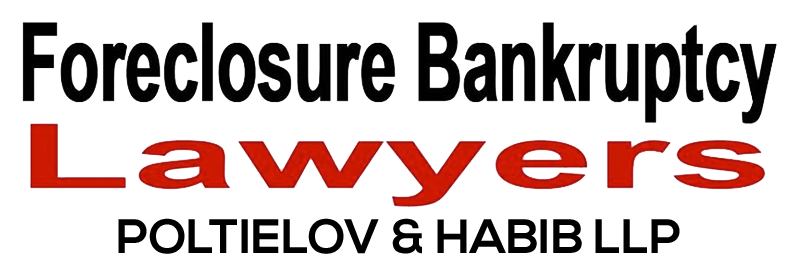
07 Nov New York Foreclosure Process: The Nuts and Bolts
The foreclosure process in New York can be long and complex. The good news is that the bank must comply with many regulations before commencing a foreclosure action. Therefore, there are many opportunities that the borrower is presented with to litigate a foreclosure action. Hiring an experienced foreclosure defense attorney in New York is a key to your success.
There are several pre-foreclosure steps the bank must take before commencing a foreclosure action. First, every mortgage has a clause that states that 30 days before a foreclosure begins, the bank will send you a notice that proceedings may commence. This is known as the “30-day default notice” or the “demand letter.” The clause requiring it can be found in your mortgage agreement. The mortgage usually states that the 30-day letter is to be sent by first-class mail. The mortgage also states that this is condition that the bank must comply with before bringing a foreclosure action. In New York, cases have been dismissed for failure for the bank to properly provide a 30-day notice. See Wells Fargo v. Eisler 2014, N.Y Slip. Op. 04753, 118 A.D. 3d. 982 (2014).
Additionally, the bank must also send a notice under RPAPL § 1304, more commonly known as a “90-day notice” or a “1304 notice”. The 90-day letter is a specific form which the bank must send by first class and certified mail, in order to commence foreclosure proceedings. The 90-day letter must provide specific information and a date by which the borrower can cure the default. A failure to send a 90-day letter would preclude the bank from commencing a foreclosure action, or the action may be dismissed if the bank does not properly send the 90-day letter. See Aurora v. Weisblum, 2011 N.Y. Slip. Op .04184, 85 AD3d 95.
If the borrower fails to cure the default, the bank will proceed and start a foreclosure action in court. A summons and complaint will filed, the court will assign an index number to the case and then the bank will serve the borrower at the subject home and/or the borrower’s last known address. You must properly be served with the summons and complaint, either by personal service at your usual place of business or at home, or you may be served by “suitable service”—which means that if you are not home, you may be served by having someone who is of “suitable age” and “discretion” and the summons and complaint must be mailed to you. Failure to properly serve can lead to dismissal of the action.
Once you are served, you have 20 days to file an answer, or 30 if the summons and complaint was mailed to you. The answer is your assertion of defenses in a foreclosure action. Certain defenses must be raised in the answer or they will be waived. The answer usually asserts defenses such as standing (whether the bank commencing the action is the owner of the promissory note), the 30-day letter, and the 90-day letter, personal jurisdiction, unjust enrichment, laches, among other available defenses. Certain defenses must be raised or they will be waived. For example, standing (the right of the bank to sue) will be waived unless it is raised with the filed answer. It is imperative to hire a NYC foreclosure lawyer to assist you in the preparation of the answer and defense of your foreclosure case.
Once you file your answer, the bank will then proceed to filing a request for judicial intervention, and the court will schedule the case for a foreclosure settlement conference before a referee. It is imperative that you attend the settlement conference. The settlement conference is a mediation where you may be given a range of loss mitigation options. It is possible that the bank will tell you that you are eligible for a streamline modification, but will also present other options such as short-sale or give you a chance to apply for a permanent modification. During this process, the bank is not allowed to file any motion in the foreclosure action. This is a violation of the Customer Protection Financial Bureau’s “dual tracking” law. During this process, you may be given an opportunity for a trial modification for three months. If you make the required payments for a trial modification, the bank will convert it to a “permanent” modification and the case will be marked settled. Once marked settled, the case will be discontinued.
In the instance that you have not filed an answer, you have 30 days to do so after the first settlement conference. If the case cannot be settled at the foreclosure conference part, it is released from the part, and the bank will proceed with litigation seeking to foreclose. In this case, the bank will file a motion for summary judgment, which argues that there is no triable issue of fact, and that the bank is entitled to judgment as a matter of law, and seek to have a referee appointed that will calculate the amount owed to the bank. The borrower/homeowner, then, would have an opportunity to oppose the motion. If the borrower is successful, the matter may go to trial. In many instances, trials will relate to standing or receipt of the 90-day notice. These are the “hotly contested” issues the courts are focused on at this time. If the homeowner is successful at trial, the case would get dismissed. If the bank is successful at trial, then they can move for a judgment of foreclosure and sale, which permits the bank to auction the property.
You can also appeal the decision of the trial court. If you lose on appeal, a Judgment of Foreclosure and Sale gets filed, you can oppose it, but the likelihood of winning is small. Afterwards, the property goes to sale. The referee prepares the terms of sale for the auction, and the property is auctioned off at a public auction. You must be served with a Notice of Sale before the property goes to auction.
In this instance, the property may not close, and you may have the opportunity to redeem it from the buyer. It is imperative that, as a borrower, you do not let the case get this far. There are many available options to you, and the foreclosure process in New York is long and complex. Therefore, it is very important that you contact our Queens and Brooklyn foreclosure attorneys to discuss your options. We are here to help you keep the property you worked hard to own and maintain.
Need help with the New York Foreclosure Process, fill out the Contact Us form. Call our Brooklyn and Queens Foreclosure Lawyers today to discuss your case. 718-850-0085


